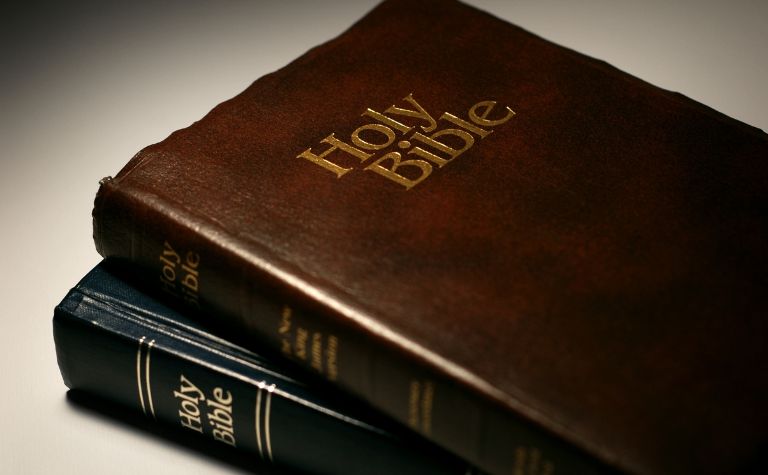Most people have moments in their lives when they are forced to decide between faith and fear. Caleb is well-known for his decision when he came to such a crossroads. The Bible is full of stories about faithful men and women trusting God when faced with overwhelming odds. Caleb is one of them.
Caleb was one of the 12 spies Moses sent to get information about the Promised Land. Most of the spies grew fearful when they saw the land’s fortified cities and the size of its inhabitants. Yet, Caleb and Joshua were courageous and believed God would give Israel victory.
What information did the spies get from discreetly observing the Promised Land? How did Caleb’s report of the land differ from what the other spies said? What other spy had a strong faith like Caleb? When and why did other Israelites want to kill him? What did God say about Caleb? Keep reading to learn the answers to these questions and others.
Also, see How Tall Was Adam in the Bible? to learn more.

Caleb: Moses’ Spy and God’s Faithful Servant
Caleb’s legacy in the Bible is that he was faithful to God despite seemingly impossible circumstances. When others Israelites grew afraid and feared people, he grew courageous and trusted God. When others were faithless and doubted, Caleb encouraged them to take a step of faith.
Caleb lived during the lifetime of Moses. He rose in stature when Israel was on the brink of entering the Promised Land after God rescued the nation from slavery in Egypt.
However, the Promised Land wasn’t empty at the time but full of sizable cities and formidable inhabitants. These obstacles intimidated some Israelites but brought out the best in others.
Moses appointed Caleb to be one of Israel’s 12 spies
When Israel was in the wilderness of Paran, south of the Promised Land (Num. 13-19), Moses put together a reconnaissance team to gather information about what the land was like and who was living there.
Moses selected 12 spies to be scouts. Numbers 13:3 reads, “So Moses sent them from the wilderness of Paran, according to the command of the Lord, all of them men who were heads of the people of Israel” (ESV). The next verse lists their names.
| Tribe | Spy |
|---|---|
| From the tribe of Reuben | Shammua, son of Zaccur (v. 4) |
| From the tribe of Simeon | Shaphat, son of Hori (v. 5) |
| From the tribe of Judah | Caleb, son of Jephunneh (v. 6) |
| From the tribe of Issachar | Igal, son of Joseph (v. 7) |
| From the tribe of Ephraim | Hoshea, son of Nun (v. 8) |
| From the tribe of Benjamin | Palti, son of Raphu (v. 9) |
| Tribe | Spy |
|---|---|
| From the tribe of Zebulun | Gaddiel, son of Sodi (v. 10) |
| From the tribe of Joseph (i.e., Manasseh) | Gaddi, son of Susi (v. 11) |
| From the tribe of Dan | Ammiel, son of Gemalli (v. 12) |
| From the tribe of Asher | Sethur, son of Michael (v. 13) |
| From the tribe of Naphtali | Nahbi, son of Vophsi (v. 14) |
| From the tribe of Gad | Geuel, son of Machi (v. 15) |
The passage clarifies that the spy from the tribe of Ephraim was Joshua: “These were the names of the men whom Moses sent to spy out the land. And Moses called Hoshea the son of Nun Joshua” (v. 16).
Also, see How Many Times Is Fear Not in the Bible? to learn more.

Caleb and Joshua gave optimistic reports
After 40 days of observation, the spies returned and reported to Moses, Aaron, and the other Israelites. While they said that the land flowed with milk and honey and showed off some of its fruit (Num. 13:25-27), the people that lived there intimidated them, which led to a disagreement with Caleb.
The first part of the spies’ report was straightforward, mentioning the strength of the inhabitants and cities. They also noted the people groups that resided there, like the Amalekites and Canaanites (v. 28-29).
Caleb expresses faith in God
Caleb then spoke up, expressing optimism and faith in God. “But Caleb quieted the people before Moses and said, ‘Let us go up at once and occupy it, for we are well able to overcome it'” (v. 30).
| Caleb’s Response | Caleb’s Theology |
|---|---|
| Let us go up at once | God’s timing is best |
| and occupy it | God’s plan is right |
| we are well able to overcome it | God’s power is available |
The reaction of the other spies was faithless and void of God. In contrast to Caleb’s faithfulness to God, the other spies’ were fearful and paranoid. They said, “We are not able to go up against the people, for they are stronger than we are” (v. 31). Most Bible scholars believe what they say next is an exaggeration.
The faithless spies continued, “The land, through which we have gone to spy it out, is a land that devours its inhabitants, and all the people that we saw in it are of great height. And there we saw the Nephilim (the sons of Anak, who come from the Nephilim), and we seemed to ourselves like grasshoppers, and so we seemed to them” (v. 32-33).
Also, see Who Is Hannah in the Bible? to learn more.

God acknowledges Caleb’s faithfulness
Sadly, the Israelite community sided with the fearful spies. They complained to Moses and Aaron, hating what their lives had become, even missing Egypt, where they were enslaved.
They said, “would it not be better for us to go back to Egypt?” and “let us choose a leader and go back to Egypt” (Num. 14:1-4). The faithful men, i.e., Moses, Aaron, Joshua, and Caleb, lamented the people’s faithlessness (v. 5-7).
They said, “If the Lord delights in us, he will bring us into this land and give it to us, a land that flows with milk and honey. Only do not rebel against the Lord. And do not fear the people of the land, for they are bread for us. Their protection is removed from them, and the Lord is with us; do not fear them” (v. 8-9).
In response, the people’s anger increased to the point that they wanted to kill their leaders. “Then all the congregation said to stone them with stones” (v. 10a). Fortunately, God intervened, “But the glory of the Lord appeared at the tent of meeting to all the people of Israel” (v. 10b).
Moses prayed that God would forgive the Israelites (Num. 14:13-19). God said he would forgive them, yet the nation would still have consequences for their disobedience.
In his response, God singled out Caleb: “But my servant Caleb, because he has a different spirit and has followed me fully, I will bring into the land into which he went, and his descendants shall possess it” (Num. 14:24).
God punished Israel with 40 years of wandering in the wilderness, one year for each day the spies observed the Promised Land.
When the Israelites eventually entered the land, Caleb wasn’t only present, but he led them to a victory at Hebron at the age of 85 (Josh. 14:10). Caleb never doubted God’s promises.
He said, “I am still as strong today as I was in the day that Moses sent me; my strength now is as my strength was then, for war and for going and coming. So now give me this hill country of which the Lord spoke on that day, for you heard on that day how the Anakim were there, with great fortified cities. It may be that the Lord will be with me, and I shall drive them out just as the Lord said” (Josh. 14:11-12).
Also, see How Many Books Aer in the New Testament? to learn more.
References:
[1] Numbers by Dennis Cole. NAC.
[2] Numbers by Gordon Wenham. TOTC.
Related Questions
A lot of people know that Jesus of Nazareth lived a long time ago. They may even know that he was a Jewish man born at the time of the Roman Empire. Yet, they are unclear about exactly when he was on...
Regular Bible reading is a valuable habit, as Scripture is God's message to people. However, the Bible's 66 distinct books, featuring various authors, settings, and themes, can make it challenging...
